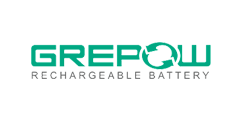What Is An eVTOL And How To Choose Batteries For It?

eVTOL aircraft are at the forefront of modern aviation, offering a revolutionary approach to urban air mobility and transportation. These aircraft, powered by electric motors, promise quieter operations, reduced emissions, and the ability to take off and land vertically, eliminating the need for traditional runways. Central to the operation of eVTOLs are their batteries, which play a critical role in determining their performance, range, and overall feasibility. Here, we explore the key aspects of eVTOL batteries and how to choose the right ones for these innovative aircraft.
What Does eVTOL Stand For?
eVTOL stands for Electric Vertical Takeoff and Landing, which is a type of aircraft that uses electric propulsion to achieve vertical takeoff and landing capabilities, similar to a helicopter. However, eVTOL aircraft differ from helicopters in that they typically have multiple electric motors and rotors or ducted fans, which are more efficient and quieter than traditional helicopter designs. eVTOLs are seen as a key technology for urban air mobility, offering the potential for on-demand, point-to-point air transportation in and around urban areas. They are often designed to be autonomous or semi-autonomous and can be used for various purposes, including passenger transportation, cargo delivery, and emergency services.

Fig.1
How Are eVTOLs Powered?
eVTOLs are powered by electric motors that drive rotors or propellers. These motors are fed by high-capacity batteries, which store and deliver the necessary energy for flight. Unlike traditional aircraft, eVTOLs do not rely on fossil fuels, making them more environmentally friendly and cost-effective in the long run.
How Much Does an eVTOL Cost?
The cost of an eVTOL aircraft can vary significantly depending on its size, range, capacity, and features. Commercial-grade eVTOLs designed for passenger transport can cost anywhere from hundreds of thousands to millions of dollars. However, smaller recreational eVTOLs for personal use may be more affordable, starting from a few thousand dollars.
Can You Buy an eVTOL?
It is possible to buy an eVTOL aircraft, although the availability of commercial models for purchase may be limited at present. Many companies are actively developing eVTOL prototypes and working towards certification for commercial operations. For individuals or organizations interested in purchasing an eVTOL, it's essential to research the available options, consider the intended use case, and assess factors such as pricing, performance, and regulatory requirements.
What Batteries Do eVTOLs Use?
eVTOLs typically use lithium-ion batteries for their energy storage needs. Lithium-ion batteries are favored for eVTOLs due to their high energy density, which allows them to store a large amount of energy in a relatively lightweight package. This is important for eVTOLs, as they require a high energy density to achieve the range and performance necessary for practical use. Additionally, lithium-ion batteries are known for their high power output, which is essential for the rapid acceleration and deceleration required in eVTOL flight.
How to Choose Batteries for eVTOL?
The choice of battery for an eVTOL (electric vertical takeoff and landing aircraft) depends on various factors, including the size and weight of the aircraft, its power requirements, and the desired range. However, some general recommendations for eVTOL batteries include:
◆Battery Chemistry: Lithium-ion batteries are the most common choice for eVTOLs due to their high energy density and power output. Other emerging battery chemistries, such as solid-state batteries, may also be suitable for eVTOL applications as they offer advantages in terms of safety and energy density.
◆Voltage: The voltage of eVTOL batteries can vary depending on the design of the aircraft and the configuration of the battery system. However, most eVTOL batteries operate at voltages ranging from 400 to 800 volts to provide the necessary power for the electric motors.
◆Capacity: The capacity of eVTOL batteries is typically measured in kilowatt-hours (kWh) and depends on the range and endurance requirements of the aircraft. Smaller eVTOLs designed for urban air mobility might have battery capacities of around 100-300 kWh, while larger eVTOLs designed for longer-range flights might have capacities of 1 MWh or more.
◆Energy Density: High energy density is crucial for eVTOL batteries to maximize the aircraft's range and performance. Batteries with energy densities of at least 200 Wh/kg (watt-hours per kilogram) are generally recommended for eVTOL applications.
Conclusion
In conclusion, choosing the right batteries for eVTOL aircraft is a critical decision that can significantly impact their performance, safety, and overall feasibility. By considering factors such as energy density, power output, safety, cycle life, and cost, manufacturers and operators can ensure that eVTOLs operate efficiently and reliably, paving the way for a future of sustainable urban air mobility. As a global leader in lithium-ion battery cell manufacturing, Grepow offers professional customization solutions for high discharge rate and high energy density lipo battery packs with intelligent Battery Management Systems(BMS) for eVTOL applications, catering to your specific application requirements.
- +1 Like
- Add to Favorites
Recommend
- eVTOL Battery vs EV Battery: What’s the Difference?
- Next-Generation eVTOL Battery Technology
- Grepow Battery was interviewed by Global Sky Media about eVTOL Power
- AIR Partners with Nidec to Develop Customized eVTOL Motor for AIR ONE Production Model
- Introduction to L Shaped Batteries
- Omnergy brand CR Series Button Batteries Have Low Self-discharge Characteristics and Can Be Stored for A Long Time to Reduce Power Loss
- What are the Characteristics and Application Fields of Button Batteries?
- Can Lithium Batteries and Lead Acid Batteries be Used Together?
This document is provided by Sekorm Platform for VIP exclusive service. The copyright is owned by Sekorm. Without authorization, any medias, websites or individual are not allowed to reprint. When authorizing the reprint, the link of www.sekorm.com must be indicated.





























































































































































































































































































































































































































































































































































































































































































































































































































































































